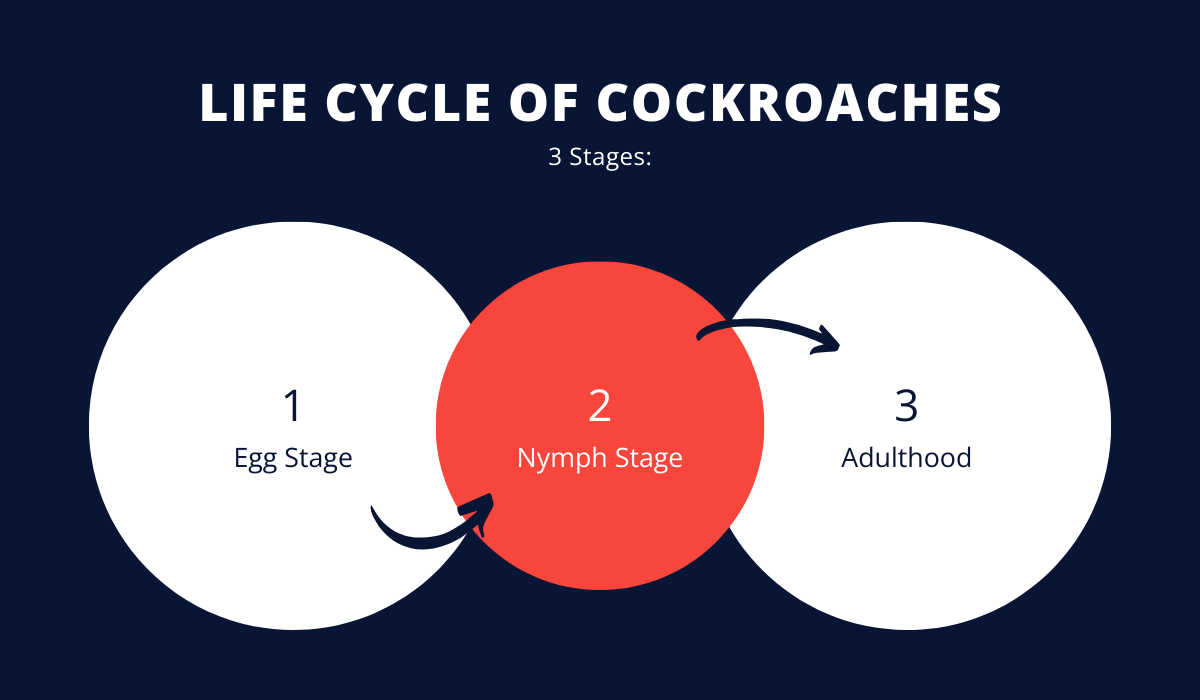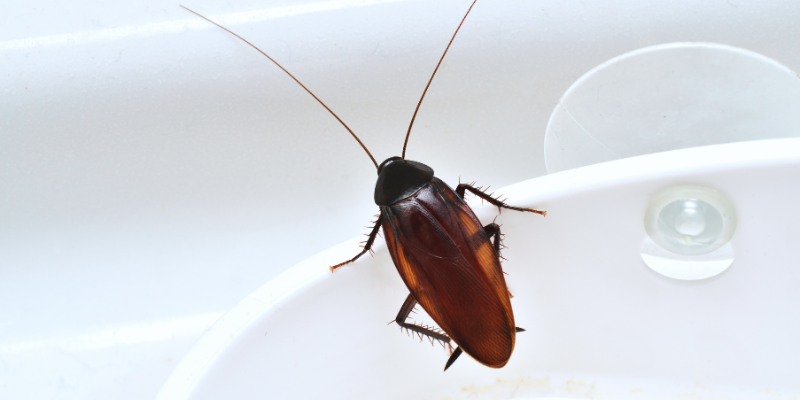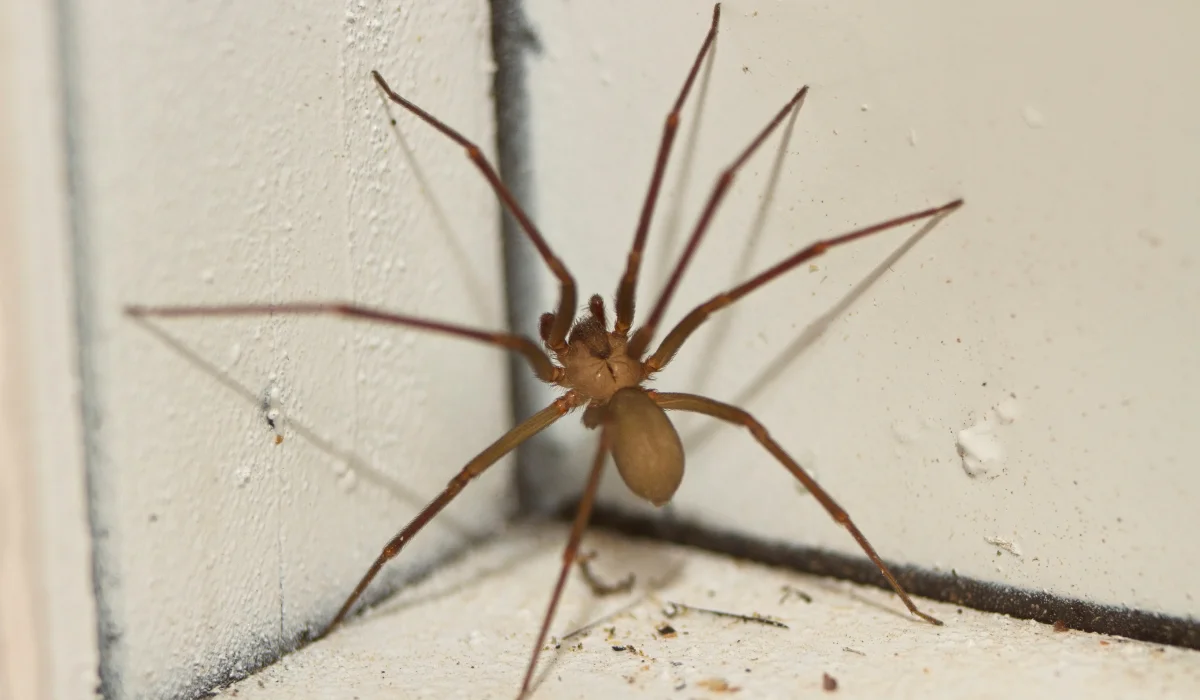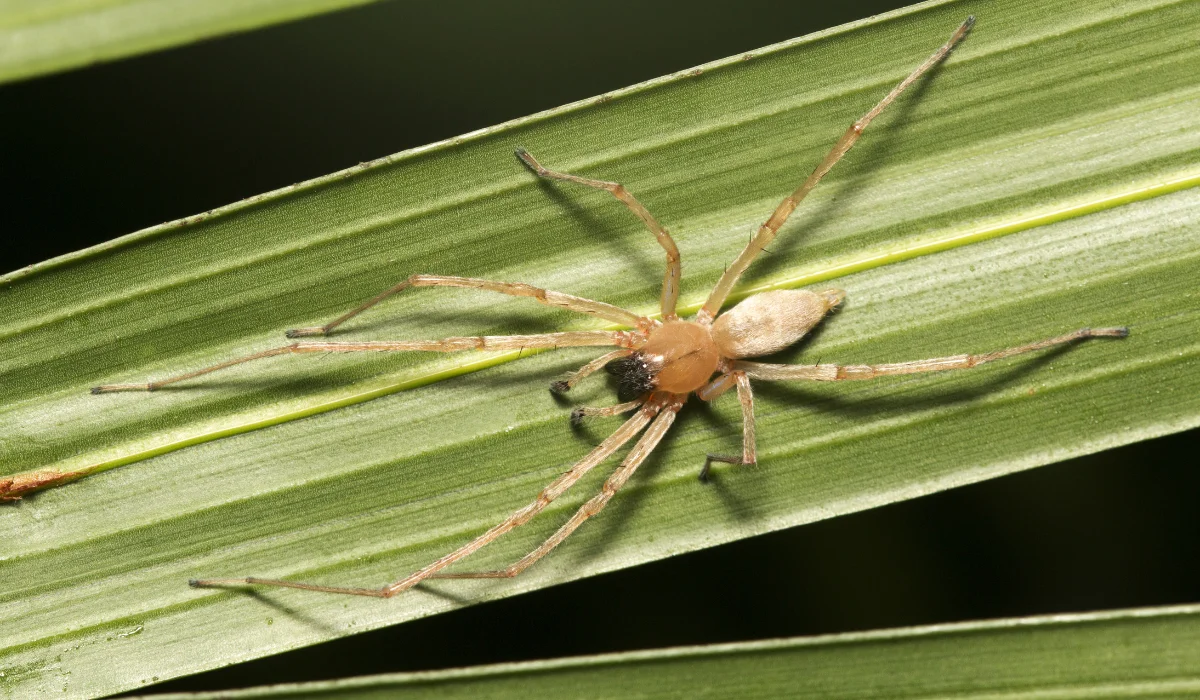Cockroaches are renowned for their resilience and are often cited as the survivors of extreme conditions. Although the lifespan of a cockroach can vary significantly by species, these critters can thrive better than in cooler areas.
But what determines their longevity, and how do the conditions in Louisiana affect their life expectancy? Could it be that the famed resilience of cockroaches meets its match in the bayou state, or do they find Louisiana the perfect roach paradise?
Let’s find out more about these surprisingly fascinating insects.
Key Takeaways
- Cockroaches thrive in Louisiana due to the state’s abundant food sources, warm conditions, and moisture. Depending on the species, their lifespans range from 6 months to 2 years.
- Key signs of a cockroach infestation include seeing live or dead cockroaches, finding their feces or egg cases, and detecting a musty, oily odor in your home.
- Effective cockroach control involves sealing entry points, maintaining cleanliness, reducing moisture, using boric acid and traps, and considering professional pest control services for severe infestations.
COCKROACH LIFESPANS IN LOUISIANA
In Louisiana, the humid climate affects the lifespans of different cockroach species.
Here are the lifespans of various roach species you might encounter and the key factors that allow them to thrive in our environment.
| Species | Average Lifespan | Key Survival Factors |
| American Cockroach | Up to 2 years | Abundant food sources, warm conditions |
| German Cockroach | 6 months – 1 year | Indoor habitats, moisture availability |
| Brown-banded Cockroach | 6 months | Warmth in indoor environments |
| Oriental Cockroach | 1 – 1.5 years | Access to water, cool and damp areas |
Here’s a breakdown of how long they can endure under various conditions:
- Without Food: Cockroaches can survive for about one month without food as long as they can access water.
- Without Water: Cockroaches can survive for about one week without water, although this duration can vary depending on the species and environmental conditions.
- Without a Head: A cockroach can live for up to one week without its head, thanks to its open circulatory system and the ability to breathe through small holes in each body segment.
- After Being Sprayed: The lifespan of a cockroach after being sprayed with insecticide can vary greatly depending on the type of insecticide and the cockroach’s exposure to it. Some may die within minutes or hours, while others, if only lightly exposed, might survive longer.
- In the Cold: They can survive short cold periods and will likely seek out warmer environments to escape low temperatures.
Life Cycle of Cockroaches

Louisiana’s warm and humid environment creates a perfect breeding ground for cockroaches and supports their life cycle.
Here’s a detailed look at each stage:
- Egg Stage: The cycle starts with eggs protected in an ootheca. The number of eggs per ootheca varies by species, indicating reproductive diversity.
- Nymph Stage: Nymphs emerge from eggs and undergo multiple molts to grow. The state’s conducive climate accelerates their development.
- Adulthood: Reaching adulthood signifies the ability to reproduce. Louisiana’s favorable environment can extend development speed and lifespan.
FACTORS THAT INFLUENCE COCKROACH SURVIVAL
The type of roaches in Louisiana face numerous environmental factors that significantly impact their ability to survive and thrive.
Temperature and Climate
Here’s how the state’s weather conditions contribute to their survival and proliferation:
| Aspect | Description |
| Warm and Humid Conditions | The constant humidity provides essential moisture for cockroaches. |
| Elevated Temperatures in Urban Areas | Cities like New Orleans experience higher temperatures, encouraging faster breeding rates. |
| Seasonal Temperature Fluctuations | It allows cockroaches to maintain a stable presence throughout the year. |
Food and Water Sources
In Louisiana, the rich availability of food and water forms an ideal ecosystem for cockroach populations to thrive:
- Food Sources: Urban areas are teeming with opportunities for cockroaches to feed, including exposed garbage, spills, and crumbs.
- Water Sources: The state’s natural dampness, particularly in sewers and other moist environments.
Shelter
The habitats where cockroaches find refuge are pivotal for their longevity. Here’s a quick checklist of environmental conditions that enhance their survival:
- Warm locations: Areas with consistent warmth, such as heated buildings or underground systems.
- Moist and damp areas: Places with high moisture are essential for cockroaches to prevent dehydration.
- Dark and secluded spaces: Cracks, crevices, and hidden spots that protect them from predators and control measures.
- Abundant nesting materials: An availability of fibrous materials for building nests aids in the nurture of nymphs.
SIGNS OF A COCKROACH INFESTATION
As homeowners, spotting the telltale signs of a cockroach infestation is crucial to address the issue promptly.
Identifying the Signs
You can identify a cockroach problem by looking for specific indicators. Here’s what to keep an eye out for:
- Feces: Cockroach droppings resemble black pepper or coffee grounds and indicate infestation.
- Egg Cases: Look for oval-shaped egg cases containing numerous eggs.
- Unpleasant Odor: A musty, oily smell that intensifies with the severity of the infestation.
- Live or Dead Cockroaches: Spotting these critters, especially during the day, can indicate a significant problem.
Common Cockroach Hideouts
These household pests prefer dark, damp areas with easy access to food. They often reside in:
- Kitchens: Drawers, under sinks, and behind appliances are prime spots for infestation.
- Basements: Given their preference for darkness, basements can become major hideouts.
- Crawl Spaces: Cockroaches can thrive in the undisturbed environment of a crawl space.
AT-HOME COCKROACH CONTROL
DIY Pest Control Methods
When it comes to DIY cockroach control, consistency is crucial. So, repeatedly applying these strategies will significantly reduce the likelihood of an infestation.
| DIY Method | Description |
| Seal Entry Points | Check and seal any cracks or crevices in the walls, foundation, and around doors and windows to prevent cockroaches from entering. |
| Keep It Clean | Regularly dispose of garbage, wash dirty dishes promptly, and store pet food properly to avoid attracting pests. |
| Reduce Moisture | To eliminate water sources for cockroaches, fix leaky faucets and pipes, use dehumidifiers, and avoid leaving standing water. |
| Use Boric Acid | Sprinkle boric acid powder in areas where cockroaches are likely to hide, such as under sinks, behind appliances, and in crawl spaces, for effective control. |
| Incorporate Traps | Place glue traps along baseboards and corners to catch roaches and monitor infestation levels. |
IS IT TIME TO CALL THE EXPERTS?
When DIY fixes and store-bought traps aren’t cutting it, it’s time to hand over the reins to pest control services.
Why struggle with baits and sprays when you could have peace of mind? Professional pest control companies are equipped to tackle the problem quickly and efficiently.
Wherever you’re in Louisiana, seeking expert help should be easy. For immediate intervention for a severe infestation, let Lajaunie’s cockroach control specialists tailor a solution that’s right for your home.
For more information about the areas we service, visit our location page.
 By: LaJaunie's Pest Control
By: LaJaunie's Pest Control 


